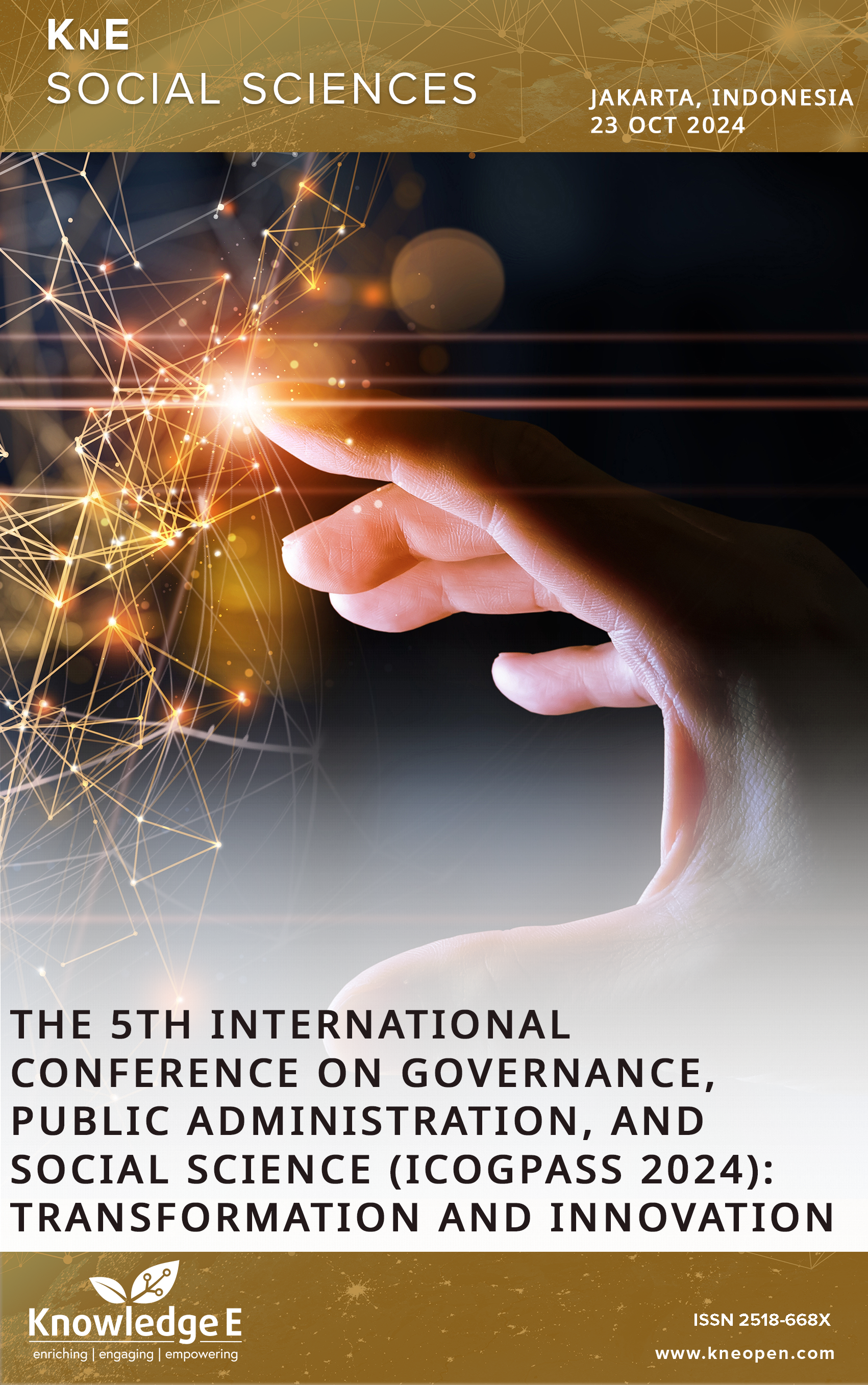Implementation of the Experiential Learning Model in the Training of Civil Servants of BerAKHLAK: Study at the Ministry of Transportation and the National Research and Innovation Agency
DOI:
https://doi.org/10.18502/kss.v10i16.19205Keywords:
ASN, experiential learning, BerAKHLAKAbstract
As a public servant, ASN (Aparatur Sipil Negara/State Civil Apparatus) is required to have good attitudes and morals to serve the community, therefore, character building training is needed. One of the training techniques is Experiential Learning (EL). This approach is considered to be the most relevant to the process of implementing training in the context of shaping the ASN’s character because it emphasizes learning through doing the material being taught and can address non-technical learning objectives like enhancing trainees’ soft skills (social skills). This journal compares how the experiential learning approach is used in two government agencies; the Ministry of Transportation and the National Research and Innovation Agency. This comparison is based on aspects of Experiential Learning according to Kurt Lewin (1946) and Core Values of ASN BerAKHLAK. This research uses a descriptive qualitative approach through literature studies based on journals, books, and studies of laws and regulations and other data. The result of the research is that the Ministry of Transportation and BRIN have been able to implement the EL concept in character building training but in different ways. Kemenhub focuses on the concept of outdoor training by increasing activities in the form of games, the training material provided is broader in scope and informal in nature. Meanwhile, BRIN focuses on the method of interviewing the community regarding the understanding of nationalism values and then making a video of the interview results considering the learning material of the training is related to nationalism and is also formal.
References
[1] Indonesia. Undang-undang Nomor 20 Tahun 2023 Tentang Aparatur Sipil Negara. Supplement to Official Gazette of the Republic of Indonesia Year 2014, Number 6897. Jakarta: State Secretariat; 2023.
[2] Indonesia. Circular Letter of the Minister of Administrative and Bureaucratic Reform Number 20 of 2021. Jakarta: State Secretariat; 2021.
[3] Indonesia. Institutional Regulation of the National Administrative Agency of the Republic of Indonesia Number 5 of 2023 Regarding ASN Talent Academy. Jakarta: State Secretariat; 2023.
[4] Berkah Anugrahwanto R, Nurhayati S. Model Pelatihan Berbasis Metode Experiential Learning Pada Diklat Pembangunan Karakter CPNS (Calon Pegawai Negeri Sipil). Kementerian Perhubungan. Jurnal Ilmiah Program Studi Pendidikan Luar Sekolah; 2020. pp. 254–61.
[5] Tamtanus AS. Pendekatan Ekperiensial untuk Meningkatkan Pemahaman Mata Ajar Nasionalisme. In Lectura: Jurnal Pendidikan, 2020, pp. 181–196. https://doi.org/10.31849/lectura.v11i2.4716.
[6] Indonesia. Institutional Regulation of the National Administrative Agency of the Republic of Indonesia Number 1 of 2021. Jakarta: State Secretariat; 2021.
[7] Muhammad Yamin. Implementasi Pembelajaran Aktualisasi Latsar CPNS pada Badan Pengembangan Sumber Daya Manusia Provinsi Sulawesi Selatan. Jurnal Sumber Daya Manusia Aparatur. JSDA; 2021. pp. 23–34.
[8] Fathurrohman M. Model-model pembelajaran Inovatif. Jogjakarta: Ar-Ruzz Media; 2015.
Published
How to Cite
Issue
Section
License
Copyright (c) 2025 Budi Fernando Tumanggor, Ganeca Larasati Hartoyo, Haical Azka Gifahrianto, Tiara Putri Ramadani, Guntur Putra Purnama, Maurizka Chairunissa, Aulia Afifa Pratiwi

This work is licensed under a Creative Commons Attribution 4.0 International License.

